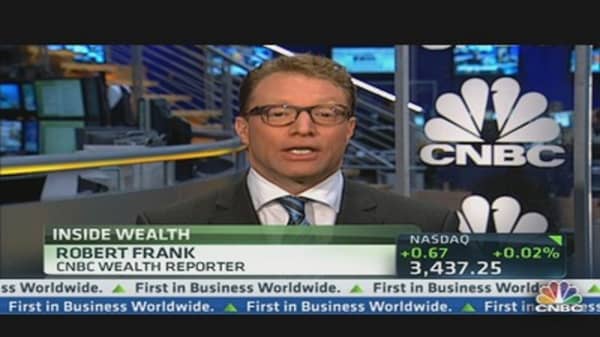News that the Internal Revenue Service scrutinized conservative political groups has put the spotlight on another IRS target: the wealthy.
Audits for wealthy taxpayers have surged in recent years, leading some conservatives to question whether the IRS is unfairly focusing on those with high incomes. According to IRS data, taxpayers making $1 million or more are more than 12-times more likely than the rest of the population to be examined.
The IRS said for its 2011 examinations of 2010 returns, about one in a hundred Americans were audited. The IRS, however, audited 3.8 percent of returns for those making $200,000 or higher. The agency audited 12.5 percent of returns for those making $1 million or more.
Arthur Laffer, the conservative anti-tax crusader, said the IRS should not be picking audit targets based on their income levels.
"They should not be auditing people based on profit maximization," Laffer said. "It means that people who skim below the top levels won't be audited and it's tax cheats galore." He added that giving the IRS audit power gives it a "very powerful tool that they can use in the political process."
The IRS didn't immediately comment.





